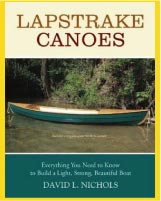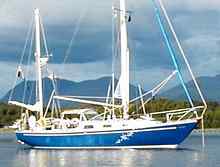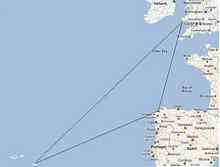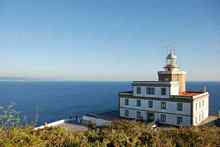We sailors tend to de a superstitious lot on the whole, and why not, when you are dealing with something as vast and immutable as the sea it pays to be conservative. At the heart of most sayings and superstitions there is a grain of truth, like the one that promises 'disasters come in threes'. On the surface it seems to be just ignorance and blind prejudice, but when you consider it a bit more it begins to make sense. The marine environment is very hard on man made structures like boats. The sun weathers the timbers, salt water corrodes many metals (more so when warm) and the constant movement and vibration doesn't help mechanical components. It's not surprising that every so often something breaks. This in itself is not a disaster and in many cases you should have built in redundancy to cope with the loss. It's when the one loss leads to another and another that the disaster occurs. Like that loose wire you meant to fix shorts out your battery that you need to start the engine and the wind dies leaving you on a lea shore. Well it looks like we just have to radio for help, only you can't because the battery is dead, remember! When you look at the situation in these terms it obvious that unless you design systems with redundancy and think things through very carefully there is a good chance that you will find that a minor annoyance escalates to a major annoyance and then into a disaster and it can be such a small thing like a missing grommet that can eventually, in the wrong conditions, that should never have occurred, sink a boat.
I always had a tendency to caution (even when young) which I am sure has paid off over the years, well I am still here! Let me tell you a tale of my youth, comparative youth that is as it happened when I was about 27. I always had a yearning for the sea and decided at that point to buy a boat to live on, as I had no prior experience and could not sail (I decided I would learn as I went along) it took a lot of deliberation to choose the right boat, which turned out to be a new Catalac 9 metre catamaran.
|
Catalac 9m catamaran similar to the one I owned at the time |
Not a fast beast but as safe and commodious as you could get, which with hindsight proved to be the best choice I could have made. After some adventures and moving the boat around the south coast getting to grips with navigation and such like, I decided it was time to be more adventurous, but felt that a major voyage was a little bit beyond me. After reading the advertisements in a popular boating magazine I decided to enrol for a 3 week RYA ocean cruising course which seemed to be very reasonably priced.
The course started in Milford Haven on the south west corner of Wales. It is used as a deep water tanker harbour and is surrounded by very picturesque countryside, but the only part of that I remember is the long four mile walk down small country lanes in the blistering heat to get to the boat. I was the first to arrive and spent half a day looking over the boat and rehydrating while the rest of the crew arrived. The full complement was six students, one skipper, who was about 60, and his girlfriend who acted as cook and support staff. The boat was a 48 foot ketch with a centre cockpit. I think it was a Nicholson or similar make and looked tough and reliable.
|
Centre cockpit ketch similar to the one that I sailed on |
That evening we spent looking over the charts and discussing the route, which proved to be quite exciting. The first week was to be spent cruising the Bay of Biscay down to the coast of North Spain. The second week was an 800 mile trip out into the Atlantic to the Azores and the final week was the return to Milford Haven, exciting, daunting, but if all went well we should gain some invaluable experience.
|
Route of the trip, each leg was to take a week |
As the first week progressed it became clear that all was not well. The skipper, an ex cavalry officer, spent a lot of his time in the aft suite swigging gin and tonic, when he was amongst us he didn't have any patience for anyone who did not instantly understand, and seemed to prefer to put us firmly in our place if there was even the slightest hint that we may disagree with his pronouncements. As we got out into the bay the waves got larger and larger. There had just been a storm and the swell must have bean about 15 foot. You could see dolphins if you looked up above the hull of the boat. It was at this point, just over half way across, that I was on the helm and struggling to steer a straight course. The helm didn't respond the same way as my catamaran and although I had very little other experience, it felt wrong, somehow sluggish. I mentioned this to the skipper. He took over and gave the immediate response "Nonsense, its fine, you don't know what your talking about". It was what I had anticipated so I let it pass. After a few other minor incidents the girlfriend who was by now acting as go between came out of the aft cabin and suggested that we should' "Cut the captain some slack, as he was battling with cancer". I kept my thoughts to myself at this point but felt that it he couldn't do the job he should not be there as he had the responsibility for our lives.
Two days later saw us closing with the Spanish coast near to La Coruna. At this time much of the navigation relied on dead reckoning and pilot books, which had long photographs of the coastline to be matched up with what you saw ahead. GPS hadn't been invented and RDF (radio direction finder) was rather patchy once you left the English and French coast. The skipper swore blind he knew where he was as he had been here several times before and recognised the tall chimney stack on shore. I wasn't convinced and could see what seemed to be a line of breakers directly across our course. The skipper was quite adamant, he could not be wrong. Half an our later saw the breakers more defined and me screaming. "For gods sake stop the boat, even if its just for a few minutes to double check", "What does everyone else think". It was a mistake to appeal to the rest of the crew, who made non committal noises. They were English after all, and didn't like to make a fuss, even if their lives depended on it. By this time the breakers were so close that even the skipper had to admit that maybe he had made a mistake and order a change of course. We did a 180 degree turn and within a few hours La Coruna was ahead of us.
It was as we were entering the harbour that the steering jammed and we had to have a tow the last few hundred yards. On this particular boat the steering was connected to the rudder by a gearbox under the aft bunk. This gearbox was secured by three bolts, two of which has sheered long ago, leaving the gearbox pivoting on the third, which had just snapped. No wonder the steering felt wrong. And what a good job it held for that extra few hours. Over the next two days, while the gearbox and linkage rods were being repaired, I did a lot of thinking. I wanted to continue on the great adventure and was excited to see the Azores, about which I had read a great deal. But on the other hand, the two incidents had caused me to loose confidence in the boat and its captain. To make matters even worse, the other students didn't seem capable of independent thought and lacked the courage of their convictions. I was unwilling to place my life in the hands of this disaster just waiting to happen. After the evening meal I informed the skipper of my decision and asked for a refund for the next two weeks of the course. "So you're jumping ship are you". I was no longer willing to play with words. "I have lost faith in you and the ship. You could have got us all killed with your insistence that we sail into the line of rocks, at what point would you have changed course if I had not insisted. You also insisted that the steering was OK when I felt something was wrong. I don't have confidence that we will arrive home safely". I made the same mistake again. "What does everybody else think", nobody spoke up. This confirmed my opinion that the rest of the crew were not shipmates to trust in a crisis. I got my refund in the form of an immediate cheque and left.
|
Fisterra lighthouse, well placed on a very windy stretch of coastline |
I didn't wait for the third incident to make a disaster. I don't know what happened to the boat or the crew, they probably got home OK as there was nothing in the news about a missing boat, but I am glad I didn't take the risk. I went on to sail a similar boat back across the bay after a week of waiting for the weather at Cape Finisterre to improve. Every day we took the long walk up to Fisterra Lighthouse to check the incoming weather. In the end it didn't improve so we left anyway and suffered the first 30-40 miles of rough conditions. When I got back to England this adventure confirmed my opinion that a catamaran was much more stable than a heeled over monohull and happy that I had made the right choice.
*****
Click HERE for a list of articles by Mike Machnicki |









